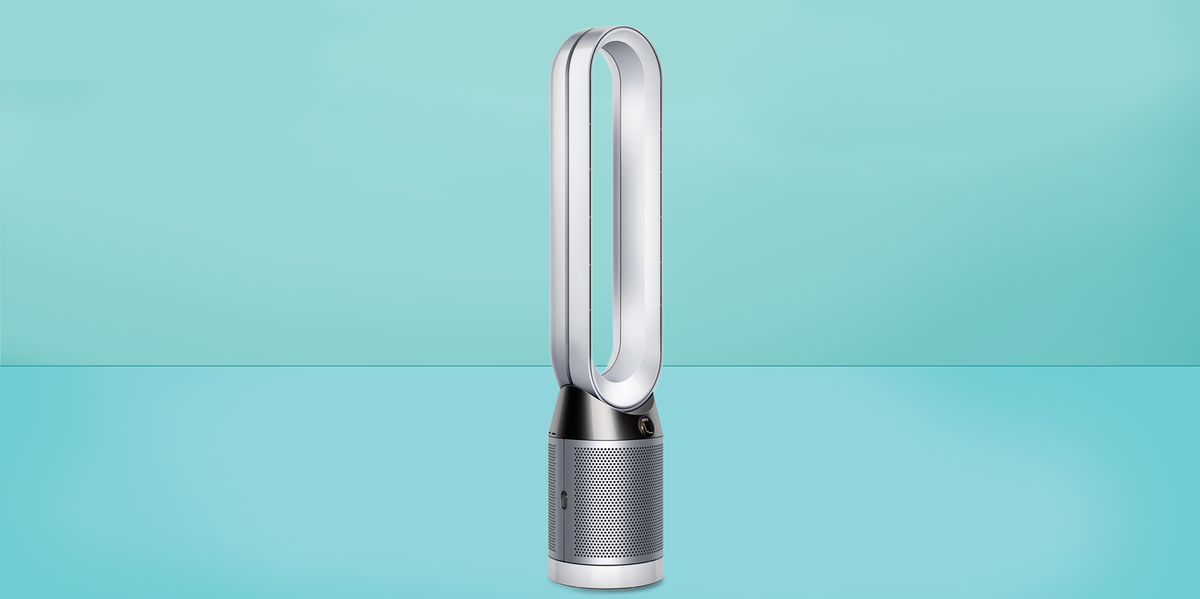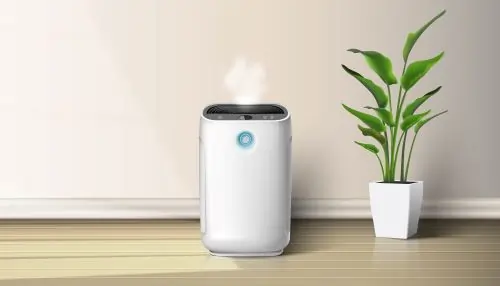Featured
Table of Contents
- – Recognizing Allergic Reactions and Triggers
- – Can Air Purifiers Aid With Allergies?
- – The Scientific Research Behind Air Purifiers ...
- – Are Air Purifiers Right for You? Aspects to T...
- – Maximizing Air Purifiers for Allergies
- – Beyond Air Purifiers: A Multi-Pronged Strategy...
- – Living a Breath Easier Life with Allergies

Air cleansers are frequently proclaimed as a service, appealing cleaner air and relief from allergy signs. Are air purifiers genuinely worth the investment for allergy victims?
Recognizing Allergic Reactions and Triggers
To recognize the function of air purifiers, let's very first delve into allergies and their triggers:
- The Sensitive Feedback: Allergies occur when your immune system panics to a safe compound, like plant pollen or dirt termites. This response causes the release of histamines, causing allergic reaction symptoms like sneezing, coughing, scratchy eyes, and a runny nose.
- Usual Irritants: Indoor irritants include dirt termites, pet dog dander, mold and mildew spores, plant pollen that wanders inside your home, and also cockroach irritants. These airborne particles can irritate your air passages and set off allergy symptoms.
Can Air Purifiers Aid With Allergies?
Air cleansers function by reeling in air, filtering out contaminants, and releasing cleaner air back into the room. Here's just how they can possibly profit allergic reaction patients:
- Capturing Allergens: HEPA (High-Efficiency Particulate Air) filters, an usual type made use of in air cleansers, are very efficient at catching airborne irritants like dust mites, pet dander, and plant pollen. By eliminating these triggers from the air you breathe, air cleansers can help in reducing allergic reaction signs.
- Improved Air Quality: Air cleansers can additionally eliminate other toxic irritants from the air, such as smoke, dust, and unpredictable natural substances (VOCs) This general renovation in air quality can be helpful for allergic reaction victims who are sensitive to these additional triggers.
The Scientific Research Behind Air Purifiers and Allergies
Studies have actually revealed that air cleansers can be handy in lowering allergy symptoms. Here's a take a look at some crucial research study findings:
- A 2019 review published in the journal "Present Allergic reaction and Bronchial asthma Records" concluded that air purifiers with HEPA filters can be reliable in minimizing allergy signs and symptoms and boosting lifestyle for people with sensitive rhinitis (hay fever)
- A 2018 research study published in the journal "Record of Allergy, Bronchial Asthma & Immunology" discovered that making use of an air purifier with a HEPA filter in the bed room considerably minimized allergen allergen degrees and improved sleep high quality in individuals with bronchial asthma.
Nevertheless, it's essential to keep in mind that research likewise suggests some limitations:
- Air Purifier Insurance Coverage: Air purifiers are most efficient in the area where they are put. Their effect on allergens in various other components of your home may be minimal.
- Intensity of Allergies: While air cleansers can help, they may not be a total option for severe allergic reactions. Medications and other allergy management strategies may still be needed.
Are Air Purifiers Right for You? Aspects to Think About
Below are some essential aspects to think about when choosing if an air purifier is worth it for your allergic reactions:
- Intensity of Allergies: If your allergies are mild and well-controlled with medication, an air purifier might not be necessary. For those with modest to serious allergies, an air purifier can be a valuable device in taking care of signs.
- Sorts of Allergens: Take into consideration the main triggers for your allergic reactions. Air cleansers are most reliable for air-borne allergens like allergen, animal dander, and plant pollen. They may not be as handy for allergens like mold that grow on surfaces.
- Lifestyle and Atmosphere: If you have family pets, stay in a location with high plant pollen matters, or have concerns about interior air top quality, an air purifier can be useful.

Maximizing Air Purifiers for Allergies
If you make a decision to buy an air purifier for allergic reactions, right here are some suggestions for optimizing its performance:
- Choose a HEPA Filter: Search for an air purifier with a HEPA filter certified to record bits as little as 0.3 microns.
- Right Dimension for the Area: Guarantee the air purifier has a Clean Air Delivery Rate (CADR) that is ideal for the size of the room you plan to use it in.
- Placement Matters: Put the air purifier in the room where you spend the most time, such as your bed room.
- Normal Filter Maintenance: Replace HEPA filters according to the producer's instructions to preserve ideal efficiency.
- Integrate with Various Other Strategies: Air purifiers are not a one-size-fits-all option. Incorporate them with other allergy administration approaches like medicine, normal cleansing, and allergen-proof bed linens.
Beyond Air Purifiers: A Multi-Pronged Strategy to Allergy Administration

While air purifiers can be a valuable device in your allergy arsenal, they are not a miracle drug (If you're looking to buy an Air Purifier then Air Cleaners Australia is the best destination.). A thorough strategy that combines air purification with other strategies is essential to attaining long-term allergic reaction relief. Right here are some extra techniques to consider:
- Medicine: Antihistamines, decongestants, and nasal corticosteroids, prescribed by your doctor, can effectively take care of allergy symptoms.
- Allergy Screening and Immunotherapy: Recognizing your details irritants with allergic reaction screening can pave the method for immunotherapy, a therapy that helps desensitize your body immune system to irritants with time.
- Air Quality Administration: Routine cleaning with a HEPA-filtered vacuum cleaner and allergen-specific cleaning products can considerably minimize allergen, pet dander, and various other irritants in your home.
- Managing Moisture: Mold prospers in damp settings. Using a dehumidifier can assist manage humidity degrees and stop mold growth, a common interior allergen.
- Way of life Adjustments: If you have hatreds pollen, staying inside during top pollen periods and bathing after hanging around outdoors can assist reduce exposure.
- Bed linens and Surface Areas: Enclosing cushions and bed mattress in allergen-proof covers can dramatically reduce allergen exposure. Frequently washing bedding in hot water aids eliminate irritants.
Living a Breath Easier Life with Allergies
Remember, managing allergies is a constant process. By understanding your triggers, carrying out a multi-pronged method, and possibly incorporating an air purifier into your strategy, you can significantly minimize allergy signs and symptoms and take a breath simpler.
Additional Considerations:
- Consulting a Doctor: If your allergic reactions are severe or not well-controlled with medicine and way of life modifications, consult an allergist for personalized referrals.
- Air Top Quality Surveillance: Take into consideration utilizing an air quality display to track allergen levels in your house and change your management techniques appropriately.
- Long-Term Investment: A good top quality air purifier can be a long-lasting investment in your health and wellness and wellness.
By taking a proactive strategy and embracing a combination of these methods, you can develop a healthier and allergy-friendly environment, allowing you to enjoy a breath less complicated life.
Table of Contents
- – Recognizing Allergic Reactions and Triggers
- – Can Air Purifiers Aid With Allergies?
- – The Scientific Research Behind Air Purifiers ...
- – Are Air Purifiers Right for You? Aspects to T...
- – Maximizing Air Purifiers for Allergies
- – Beyond Air Purifiers: A Multi-Pronged Strategy...
- – Living a Breath Easier Life with Allergies
Latest Posts
Not known Factual Statements About Is It Safe To Put Yeti Ramblers In The Dishwasher?
Are Yeti Ramblers Compatible With Dishwashers? Can Be Fun For Everyone
The Main Principles Of Will The Dishwasher Harm Your Yeti Rambler?
More
Latest Posts
Not known Factual Statements About Is It Safe To Put Yeti Ramblers In The Dishwasher?
Are Yeti Ramblers Compatible With Dishwashers? Can Be Fun For Everyone
The Main Principles Of Will The Dishwasher Harm Your Yeti Rambler?